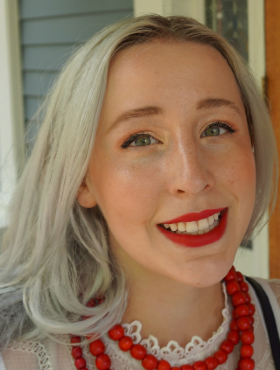Leir Migration Monitor: Leaving Lebanon: A Panacea After the Financial Collapse?

In this issue of Leir Migration Monitor, Leir-affiliated faculty Tamirace Fakhoury shares her story for The Lebanese Center for Policy Studies (LCPS) on the dilemma of staying or migrating from Lebanon. As she puts it, "What happens when states no longer offer hope for their people? Is flight the solution? Or do crises unlock opportunities for new beginnings?"
Read Professor Fakhoury's story for LCPS here:

Backyard Bankers: Episode 1, Boston-Based Bangladeshi Businessmen Fashion a DYI Solution to Fund Their US Ventures

The following is inspired by a forthcoming book, Backyard Bankers: Immigrants, Money Clubs, and The American Dream. Both the post below and the book were written by Leir-affiliated faculty Kim Wilson and her co-author, Jeffrey Ashe, a Fellow at Columbia University. Annie Bright, a Fletcher Alum contributed to this piece in 2023.
Morshed Humayun, an entrepreneur from Bangladesh living in Massachusetts is an active leader within the Bangladeshi business community. When formal banks rejected their requests to borrow funds to invest in Boston businesses, the community decided to upgrade traditional shamitis, Bangladeshi money clubs, to create financial opportunities for entrepreneurs in the US.
He told us: To start a store, you need $200,000-$300,000. Nobody has that much cash on hand. Before our associations began, we would have to go to ‘hard lenders’ to start our businesses...interest rates would be 15-20% a year. Two years ago, for example, one of our business groups went to a hard lender to take out a loan for $200,000 for a project we were doing in Lowell, Massachusetts. We were paying $2,500 each month in interest, not even touching the principal.
The shamitis, by contrast, provide a far more accessible means for funding a new business venture.
The Boston Business Association money club includes 50 accounts or shares. Each account account contributes $2,000 to a club pot. At the monthly meeting, the pot is distributed to two members. Each account receives a payout of $50,000. The money club continues until all accounts have received a payout, at which point members may begin a new cycle.
Members — all owners of convenience stores — guarantee club payouts by pledging their businesses as collateral. “This is a long-term commitment,” Morshed explained, “so, the number one condition for this association is that you must have collateral. For us, this means you can’t enter the club unless you have a store.” The high-stakes nature of this association—and of its shared liability—lead to very selective approaches to membership.
Morshed divided the 50 accounts into two groups, which he calls teams. Although the club is regulated informally, it does involve financial analysts, collateral, and evaluation of the cash flow of potential members. Three officers are responsible for each team: a president, a treasurer, and a secretary. When considering a new candidate for membership, the team analyses the individual and their assets. To join, members must show that their stores have a reliable, monthly cash flow. The stakes for admitting new members are high, given that the club is the participants’ sole source of funding, and is grounded in a mutual, cultural understanding:
We have our own version of [interest] “rates” within our system. We are all Bangladeshi, so we all have a cultural understanding of how things work. That’s why your relationships matter. That’s why collateral matters. Even if someone had a billion dollars, we wouldn’t just let them into our club. Because if we don’t have close enough relationships with them, who would be willing to be held liable for them?
Members can hold one account for each store they own, so a single member may have more than one account. Someone with three stores, for example, would have three accounts, which means they contribute $6,000 each month. It is common for a single member to have multiple accounts; the association has 35 members and 50 accounts (or 50 shares).
In any given month, payouts are distributed in two ways. The first payout follows an established order determined at the beginning of the cycle. The second payout is not regular, but based on a lottery system in which a winner is randomly chosen in a draw. Members like both the predictability of the first payout and the surprise of the second payout. By the end of the 25-week cycle, all accounts will have received both payouts.
Members invest their payouts in a range of projects including real estate and rental cars. The club itself has made 90 acquisitions in convenience stores, purchasing them in neighborhoods that can generate good returns. Avoiding the high rents of downtown, the group has sought stores in Boston communities like Dorchester and Mattapan for their lower rents and high demand for convenient goods. Because $50,000 is insufficient to purchase a convenient store, often members will co-invest with payout recipients to raise the total capital needed.
Investments and technology in business operations
Morshed and his club members have been creative when it comes to leveraging low-cost support in service to their Boston stores. He notes that while all members plan to stay—and therefore invest--in property in the U.S. rather than Bangladesh, many invest in human capital back home to maintain their businesses:
I do have one small satellite office back home in Bangladesh that monitors all of our stores’ camera systems. They do a great job. They alert us to someone hiding or stealing things, and they can call the Boston police from a US number to respond to an incident they see on camera.
They send Morshed reports and perform other services like payroll, inventory management, and employee monitoring. Others in the club similarly leverage connections back home to save money, noting that while some pay $500 monthly for payroll, employee monitoring, and store security, those using Bangladeshi services can pay as little as $80 a month.
Morshed has high hopes for the future. He and his fellow members hope to start or collaborate with a bank or credit union to increase their access to capital.

Spotlight: Victoria Kuleza, F20

Victoria Kulesza is a project manager and technical researcher in international development from Detroit, MI, USA. As the daughter of asylum-seekers from Soviet-occupied Poland, Victoria is a passionate advocate for the social protection and well-being of all migrants. She is an alumna of Michigan State University as well as a Master of International Business graduate from the Fletcher School of Law and Diplomacy where she studied business for social impact and global political economy, with a research focus on labor migration along with return and reintegration programming. Her regional expertise is rooted in Latin America & the Caribbean as well as Eastern Europe & Eurasia. Victoria works under Abt Global’s International Development division on initiatives focused on social health protection, gender and social inclusion, as well as dignified livelihoods.
Current Role: Technical Program Officer at Abt Global LLC
I'm working on: Improving migrant access to social health protection in Latin America and the Caribbean through studying gaps in the health financing and information system landscape. Our team is working with local stakeholders, such as the Honduran Health and Migration Board (MIISM), to map and advance efforts to reach in-transit migrants, returnees, and those at risk of migration. Additionally, in Ukraine, we are also implementing interventions focused on improving telemedicine access and service delivery for those displaced by the full-scale invasion.
An insight I discovered: Adopting a human rights-based approach is essential throughout all levels of designing and implementing social protection interventions so that, ultimately, these efforts can be sustainably transitioned over to empowered local stakeholders. Considering how vulnerable migrant-focused programming can be to risks such as political will, it’s critical to resource and collaborate with community-based organizations with expertise on the needs of the displaced.
I'm passionate about: Supporting displaced and vulnerable populations through inclusive social protection programming and policy. COVID-19 especially exacerbated gaps across health systems and labor markets worldwide, and migrant populations have disproportionately felt the negative consequences (such as higher out-of-pocket expenditures and increased securitization at the border) of inadequate financial risk protection and service coverage. Advancing migrant well-being has been a consistent focus throughout my career and I am motivated by others who also have family histories of displacement.

